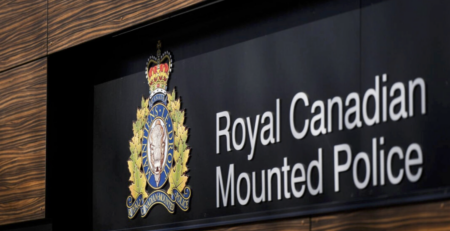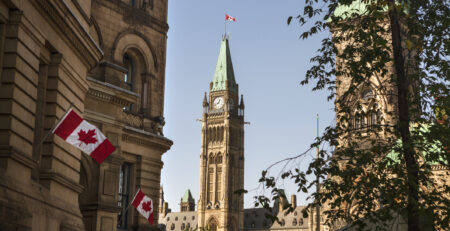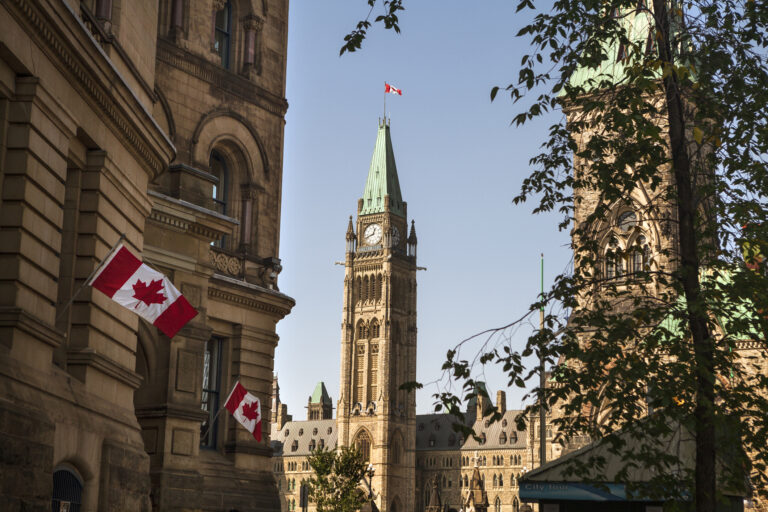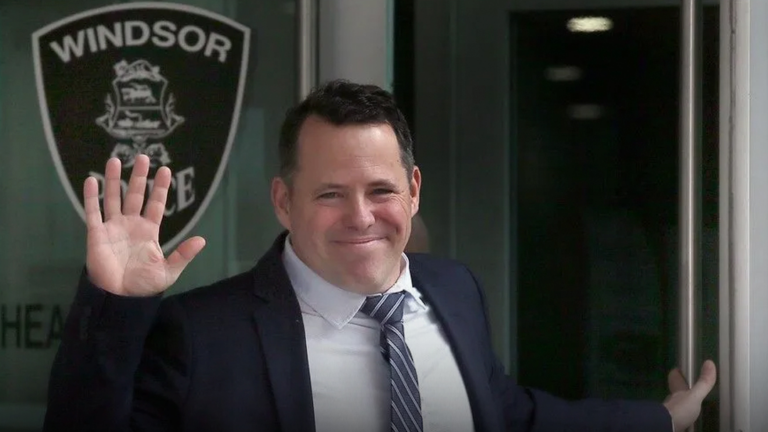The Justice Centre for Constitutional Freedoms (JCCF.ca) today released the 2017 Campus Freedom Index. First published in 2011, the annual Campus Freedom Index provides students, parents, politicians, university administrators, and the public with data about the state of free speech on 60 Canadian public universities.
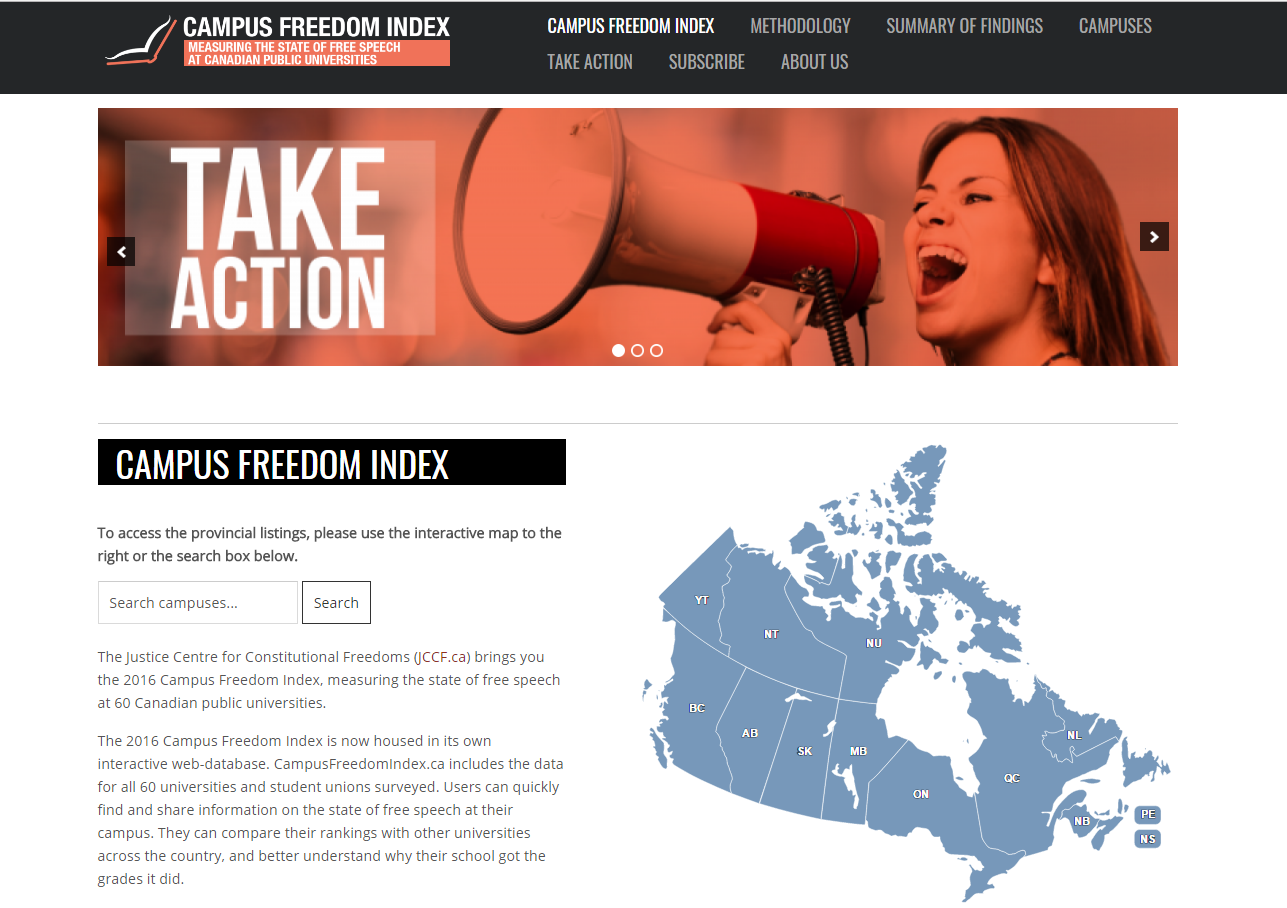

With 240 grades awarded to 60 campuses, Canada’s universities and student unions in 2017 have received only six A grades. Conversely ‘F’ grades were earned 38 times—an increase of 6 over 2016.
While student unions continue to earn far more ‘F’ grades than university administrations, the 2017 Campus Freedom Index reports that ‘F’ grades earned by universities increased 71%: from seven in 2016 to twelve in 2017. By comparison, student unions this year earned 26 ‘F’ grades, compared with 25 ‘F’ grades in 2016.
The master chart of grades for each of the 60 universities and student unions surveyed can be found here.
The 2017 Campus Freedom Index is housed in its own interactive web-database. CampusFreedomIndex.ca includes comprehensive reports on free speech at each of the 60 universities and student unions surveyed. At CampusFreedomIndex.ca, users can quickly find and share information on the state of free speech at their campus. They can compare their rankings with other universities across the country and better understand why their school got the grades it did. CampusFreedomIndex.ca enables students, professors and concerned citizens to take action and fight back against campus censorship.
“The state of free speech on campus has gotten worse in the past year,” stated Calgary lawyer John Carpay, President of the Justice Centre. “We have seen a sharp rise in the number of universities that censor legitimate free expression on campus.”
Rather than educating their communities about the importance and necessity of academic freedom, notes Carpay, universities are increasingly being influenced by small, vocal and violent groups who refuse to tolerate opinions they don’t like. In doing so, these public institutions are abandoning their social obligation to be the safe haven for free expression and allowing a “heckler’s veto”.
2017 CAMPUS FREEDOM INDEX – THE ‘A’ LIST
The following 5 universities earned at least one A grade in the 2017 Campus Freedom Index:
Bishop’s University, for defending its decision to invite criminal defence attorney Marie Henein in the face of public criticism. Bishop’s also earns an A in the policies category, making it the only university surveyed to receive double A grades in 2017.
Laurentian University, for maintaining a strong policy framework to protect free speech.
Simon Fraser University, for maintaining a strong policy framework to protect free speech.
University of Alberta, for maintaining a strong policy framework to protect free speech.
University of Lethbridge, for maintaining a strong policy framework to protect free speech.
Not one student union earned an A grade in the 2017 Campus Freedom Index.
2017 CAMPUS FREEDOM INDEX – THE ‘F’ LIST
The following 12 universities earned at least one F grade in the 2017 Campus Freedom Index:
McGill University, which accepted, and allegedly influenced, the resignation of one of its professors who made controversial comments in an opinion editorial.
McMaster University, which allowed a disruptive mob to shut down a speaking engagement.
Ryerson University, which cancelled a panel discussion on campus over “recent events in Charlottesville”.
St. Francis Xavier University, which reserves the right to cancel events if they cause considerable “emotional harm” to others.
Université de Laval, which ordered a student group’s educational display removed on grounds that it was “unsanctioned activism”.
University of Alberta, which charged a student group $17,500 in security fees and now defends its actions in court.
University of Lethbridge, which suspended one of its professors and investigated him for violations of the Human Rights Act, for his commentary on the Holocaust.
University of Manitoba, which reserves the right to ban expression if it is “offensive to community standards”.
University of Ottawa, which considers one instance of “offensive remarks” to constitute harassment.
University of Prince Edward Island, which considers one instance of “offensive and/or unwelcome” conduct as constituting harassment.
University of Toronto, which urged one of its professors to stop repeating his opinions about the university’s efforts to enforce usage of gender neutral pronouns.
Wilfrid Laurier University, which failed to provide adequate security for an educational display by one of its student groups which was uprooted and blockaded by protesters.
Three student unions earned ‘F’ grades for both their policies and for having actively censored free speech on campus, making them the worst in Canada:
- the University of British Columbia Alma Mater Society, which rejected the application for club status of a men’s rights advocacy group.
- the Student Association at Durham College and UOIT, which banned a pro-life student group on the basis of its views.
- the Ryerson Students’ Union, which denied club status to a men’s issues awareness club on the basis of its views.
The following 23 student unions earned at least one F grade in the 2017 Campus Freedom Index:
Brandon University Students’ Union, which “will not accept advertising that is sexist, racist, homophobic, discriminatory or derogatory to any particular group of people.”
British Columbia Institute of Technology Student Association, which bans advertising that might “infer subjective moral values”.
Concordia Students’ Union, which reserves the right to remove anyone from a booked space that is “objectionable”.
Dalhousie Student Union, which takes numerous positions on issues outside its mandate, including a recent stance against Canada Day as an “act of solidarity with our indigenous members”.
Students’ Association of MacEwan University, which bans student groups from expressing “offensive or demeaning” views.
Kwantlen Student Association, which takes official stances on abortion, coal exports, Childcare and the Minimum Wage, Cosmetic Pesticide Use, Idle No More, the environment, LGBT issues, medical marijuana and safer sex.
Students’ Society of McGill University, which states that it will not permit posters that “contain objectionable materials deemed inappropriate by the SSMU”.
Mount Allison University Student Union, which reserves the right to disqualify candidates for student government positions for “inappropriate” speech.
Mount Saint Vincent University Student Union, which bans “material that demeans or discriminates”.
Ryerson Students’ Union, which denied club recognition to a student group based on its views.
St. Francis Xavier University Student Union, which bans posters that could be considered “offensive”.
University of Alberta Student Union, which bans “any poster that contains offensive pictures or language”.
University of British Columbia Alma Mater Society, which rejected the application for club status of a men’s rights advocacy group.
University of Calgary Students’ Union, which bans expression that it deems “offensive” or “inappropriate.”
University of Guelph Central Students Association, which requires that clubs attend “anti-oppression training” in order to have and maintain club certification.
Student Association at Durham College & UOIT, which banned a student group on the basis of its views.
Student Federation of the University of Ottawa, which bans expression that contributes to a “poisoned environment”.
University of Regina Students’ Union, which bans expression that might be “discriminatory, offensive, or exploitative”.
University of Toronto Students’ Union, which bans student groups who seeks to promote xenophobia, queerphobia, and transphobia, among other things
University of Victoria Student Society, which bans posters that it believes create a “hostile, intimidating, threatening, or humiliating environment”.
University of Windsor Students’ Alliance, which bans “Solicitation of membership with the intention of garnering total adherence to cultural values and religious beliefs.”
Wilfrid Laurier University Students’ Union, which defines and bans “graphic imagery” as “anything depicted in a realistic or vivid manner that can cause a strong negative reaction”.
York Federation of Students, which bans student groups that are seen as not contributing to the “cultural, social or educational values of the York University community”.
BEST AND WORST UNIVERSITIES: POLICIES
Regarding their policies, the best universities for protecting free expression are:
Bishop’s University
Laurentian University
Simon Fraser University
University of Alberta
University of Lethbridge
These five universities earn an A grade for their policies. They have a clear and unequivocal commitment to free speech on campus, set out in the university’s mission, statement on academic freedom, or other policy documents. They have no express or implied “speech code” that prohibits or restricts speech on grounds of it being “offensive,” “discriminatory,” “disrespectful,” “inappropriate”, “triggering”, a “micro-aggression,” etc., and the university does not impose or create so-called “safe spaces” where speech is restricted. They do not provide funding or other resources to groups, departments, committees, commissions or other bodies that engage in ideological advocacy, and they have an anti-disruption policy which prohibits students (and other people) from blocking, obstructing, disrupting or interrupting speech on campus.
By contrast, the following universities earned ‘F’ grades for their policies:
St. Francis Xavier University, which reserves the right to cancel events if they cause considerable “emotional harm” to others.
University of Manitoba, which reserves the right to ban expression if it is “offensive to community standards”.
University of Ottawa, which considers one instance of “offensive remarks” to constitute harassment.
University of Prince Edward Island, which considers one instance of “offensive and/or unwelcome” conduct as constituting harassment.
These universities have none of the criteria listed for an ‘A’ grade. They do not have a clear commitment to free speech set out in their policy framework, nor do they have a policy prohibiting disruption. They have one or more speech codes that prohibit speech based on subjective criteria, and they fund bodies that engage in ideological advocacy towards students, faculty, and/or invited guests.
BEST AND WORST UNIVERSITIES: PRACTICES
Bishop’s University is the only university to receive an ‘A’ for practices in the 2017 Campus Freedom Index. Bishop’s received the top grade for having publicly and vigorously defended free expression in the face of backlash over its decision to invite Toronto criminal lawyer Marie Henein to speak at its annual Donald Lecture series.
Eight universities earned an ‘F’ grade for practices of censoring expression, or failing to protect free expression rights for students, faculty and/or guests:
McGill University, which accepted, and allegedly influenced, the resignation of one of its professors who made controversial comments in an opinion editorial.
McMaster University, which allowed a disruptive mob to shut down a speaking engagement.
Ryerson University, which cancelled a panel discussion on campus over “recent events in Charlottesville”.
Université de Laval, which ordered a student group’s educational display removed on grounds that it was “unsanctioned activism”.
University of Lethbridge, which suspended one of its professors and investigated him for violations of the Human Rights Act, for his written commentary on the Holocaust.
University of Alberta, which charged a student group $17,500 in security fees and now defends its actions in court.
University of Toronto, which urged one of its professors to stop repeating his opinions about the university’s efforts to enforce usage of gender neutral pronouns.
Wilfrid Laurier University, which failed to provide adequate security for an educational display by one of its student groups which was uprooted and blockaded by protesters.
BEST AND WORST STUDENT UNIONS: POLICIES
Not one student union received an ‘A’ grade for their policies.
Four student unions earned ‘B’ grades for their policies:
Carleton University Student Association
Confédération des associations d’étudiants et d’étudiantes de l’Université Laval
Thompson Rivers University Students’ Union
University of Saskatchewan Student Union
Twenty-one student unions earned an ‘F’ grade for their policies, six more than the 15 who earned ‘F’ in 2016. These student unions do not have any written commitment to upholding free expression. Their clubs policies restrict expression. They impose speech codes, restrict campaign speech during student union elections, and adopt political positions on issues not directly related to their mandates. These student unions are:
Brandon University Students’ Union, which “will not accept advertising that is sexist, racist, homophobic, discriminatory or derogatory to any particular group of people.”
British Columbia Institute of Technology Student Association, which bans advertising that might “infer subjective moral values”.
Concordia Students’ Union, which reserves the right to remove anyone from a booked space that is “objectionable”.
Dalhousie Student Union, which takes numerous positions on issues outside its mandate, including a recent stance against Canada Day as an “act of solidarity with our indigenous members”.
Students’ Association of MacEwan University, which bans student groups from expressing “offensive or demeaning” views.
Kwantlen Student Association, which takes official stances on abortion, coal exports, Childcare and the Minimum Wage, Cosmetic Pesticide Use, Idle No More, the environment, LGBT issues, medical marijuana and safer sex.
Students’ Society of McGill University, which states that it will not permit posters that “contain objectionable materials deemed inappropriate by the SSMU”.
Mount Allison University Student Union, which reserves the right to disqualify candidates for student government positions for “inappropriate” speech.
Mount Saint Vincent University Student Union, which bans “material that demeans or discriminates”.
Ryerson Students’ Union, which bans groups that “promote misogynist views towards women and ideologies that promote gender inequity, challenges women’s right to bodily autonomy, or justifies sexual assault.”
St. Francis Xavier University Student Union, which bans posters that could be considered “offensive”.
University of Alberta Student Union, which bans “any poster that contains offensive pictures or language”.
University of British Columbia Alma Mater Society, which bans “offensive jokes
University of Calgary Students’ Union, which bans expression that it deems “offensive” or “inappropriate.”
University of Guelph Central Students Association, which requires that clubs attend “anti-oppression training” in order to have and maintain club certification.
Student Federation of the University of Ottawa, which bans expression that contributes to a “poisoned environment”.
University of Prince Edward Island Students’ Union, which bans advertisements it deems “questionable”.
University of Regina Students’ Union, which bans expression that might be “discriminatory, offensive, or exploitative”.
University of Victoria Student Society, which bans posters that it believes create a “hostile, intimidating, threatening, or humiliating environment”.
University of Windsor Students’ Alliance, which bans “Solicitation of membership with the intention of garnering total adherence to cultural values and religious beliefs.”
York Federation of Students, which bans student groups that are seen as not contributing to the “cultural, social or educational values of the York University community”.
BEST AND WORST STUDENT UNIONS: PRACTICES
No student union earned an ‘A’ in the 2017 Campus Freedom Index.
Three student unions earned ‘F’ grades for both their policies and for having actively censored free speech on campus:
- the University of British Columbia Alma Mater Society, which rejected the application for club status of a men’s rights advocacy group.
- the Student Association at Durham College and UOIT, which banned a pro-life student group on the basis of its views.
- the Ryerson Students’ Union, which denied club status to a men’s issues awareness club on the basis of its views.
By restricting free expression through both policies and practices, these three student unions are the worst in Canada.
Two additional student unions earned ‘F’ grades for their practices, but these had a higher mark in respect of their policies:
University of Toronto Students’ Union/University of Toronto Mississauga Students’ Union, which banned a student group on the basis of its views.
Wilfrid Laurier University Students’ Union, which failed to condemn the disruption of a student group’s display, and took measures to prevent the display happening in future.
NO TAXPAYER FUNDING FOR UNIVERSITIES THAT CENSOR
The Campus Freedom Index reports that Canada’s public universities receive more than $14 billion from the federal and provincial governments. While promising to uphold freedom of expression and academic freedom, many taxpayer-funded universities have instead accepted speech codes, so-called “trigger warnings” and “safe spaces.” Banning speakers, condoning the disruption of campus events, and banning controversial speech through security fees are further examples of how universities today undermine Canada’s venerable tradition of freedom of expression.
The Justice Centre has therefore launched a petition calling upon provincial governments to restrict public funding from universities that practice censorship, which can be viewed and signed here.
Students are also encouraged to submit essays responding to the Justice Centre’s 2017 Essay Contest, “Should governments restrict funding from universities that censor?” More information about this contest is available at www.JCCF.ca/EssayContest



